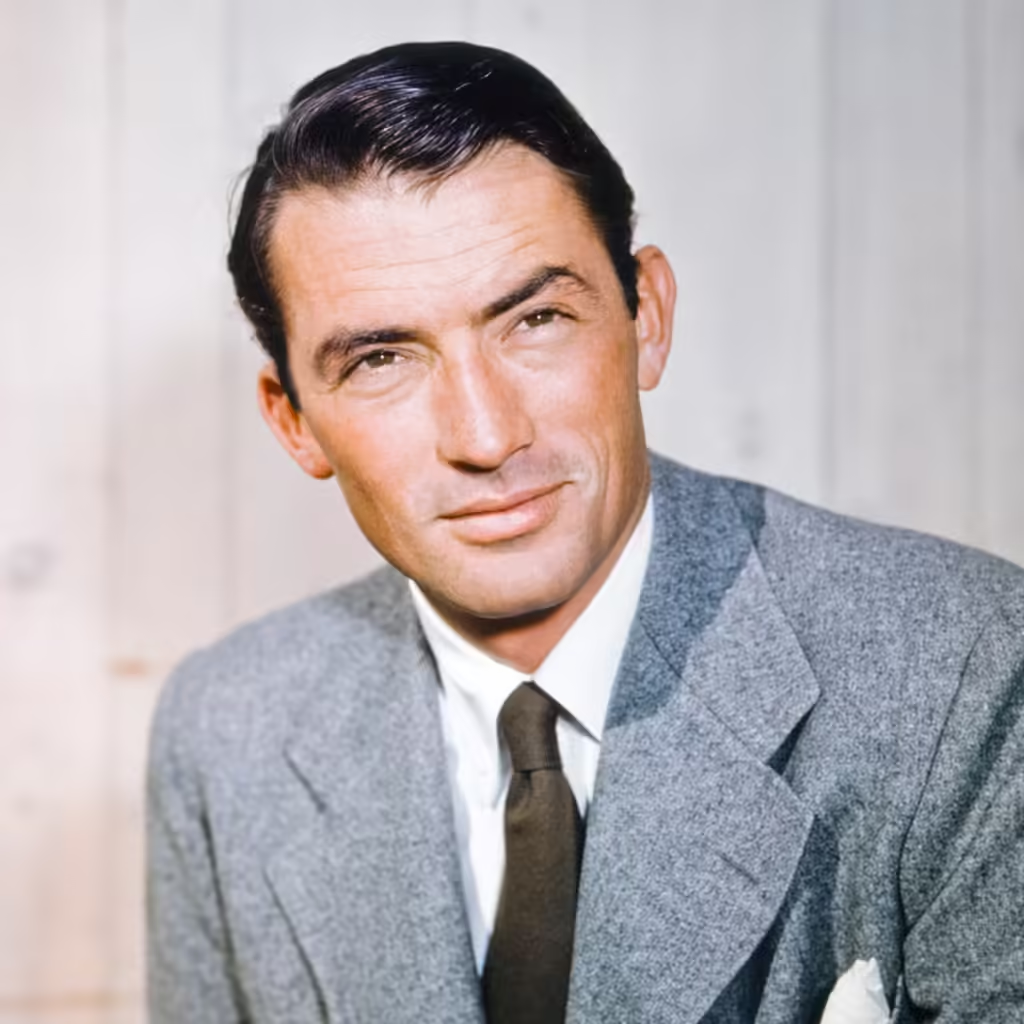
Table of Contents
Synopsis
Born in La Jolla, California in 1916, Gregory Peck initially pursued pre-med studies at the University of California, Berkeley, where he discovered his passion for acting. After moving to New York, he honed his craft and later gained fame in Hollywood. Peck is best known for his Oscar-winning performance as Atticus Finch in To Kill a Mockingbird. He also starred in classics such as Roman Holiday alongside Audrey Hepburn. Throughout his illustrious career, he became a cinematic icon, starring in numerous acclaimed films. Gregory Peck passed away in Los Angeles in 2003.
Early Life
Gregory Peck was born on April 5, 1916, in La Jolla, California, to Bernice “Bunny” Mae and Gregory Pearl Peck. His parents separated when he was three, and he spent much of his childhood living with his maternal grandmother. At age 10, he attended St. John’s Catholic Military Academy in Los Angeles before moving back to San Diego to live with his father and complete high school. Peck then enrolled at the University of California, Berkeley, initially studying pre-medicine. However, his involvement in college theater productions sparked his interest in acting. Upon graduating in 1939, he moved to New York City to pursue acting full-time, securing a scholarship to study under renowned instructor Sanford Meisner at the Neighborhood Playhouse.
Acting Career
Peck’s acting career began on Broadway in 1942 with The Morning Star. Although the play was not a commercial success, Peck’s performance was critically praised, leading to more opportunities. In 1944, he made his Hollywood debut in Days of Glory, quickly followed by The Keys of the Kingdom (1944), which earned him his first Academy Award nomination. This success was further cemented by subsequent nominations for The Yearling (1946) and Gentleman’s Agreement (1947), the latter of which tackled the subject of anti-Semitism and was directed by Elia Kazan.
With his striking looks and versatile acting abilities, Peck became one of Hollywood’s leading men. He starred in films such as Alfred Hitchcock’s Spellbound (1945) and Twelve O’Clock High (1949), which earned him another Oscar nomination. His role opposite Audrey Hepburn in Roman Holiday (1953) remains one of his most beloved performances. He also delivered a memorable portrayal of Captain Ahab in Moby Dick (1956).
In 1962, Peck achieved perhaps his most iconic role as Atticus Finch in To Kill a Mockingbird, earning him the Academy Award for Best Actor. The film, based on Harper Lee’s novel, solidified his place in cinematic history.
For the next several decades, Peck continued to demonstrate his range by starring in various genres. Notable films from this period include the thriller Cape Fear (1962), the horror classic The Omen (1976), and The Boys from Brazil (1978). He also ventured into television, gaining acclaim for roles in productions such as The Blue and the Gray and a return to Moby Dick, where he portrayed Father Mapple. Throughout his career, Peck remained a respected figure in the entertainment industry until his death in 2003.
Activism and Recognition
Outside of his distinguished acting career, Gregory Peck dedicated significant time and energy to various civic, charitable, and political causes. He served as chairman of the American Cancer Society, was a board trustee for the American Film Institute, and held the position of president of the Academy of Motion Picture Arts and Sciences. His contributions extended beyond the screen, demonstrating his commitment to making a positive impact in the world.
In 1969, Peck was honored by President Lyndon Johnson with the Presidential Medal of Freedom for his humanitarian work. Later, in 1991, he was recognized with the prestigious Kennedy Center Honors for his lifetime achievements in the arts. In 1999, the American Film Institute ranked him among the Greatest Male Stars of All Time, further cementing his legacy.
Peck passed away peacefully in his sleep from bronchopneumonia on June 12, 2003, at the age of 87, at his home in Los Angeles. He was survived by his wife of nearly 49 years, Veronique Passani, whom he married on December 31, 1955, and their two children, Anthony and Cecilia. He was also survived by his two children from his first marriage, Stephen and Carey. His son Jonathan predeceased him in 1975.
